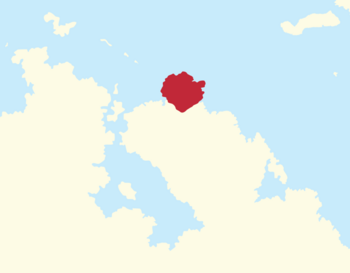Suiyuu Cirrus: Difference between revisions
No edit summary |
No edit summary |
||
| Line 25: | Line 25: | ||
|official_languages = {{wp|Purépecha language|Azawarecha}} | |official_languages = {{wp|Purépecha language|Azawarecha}} | ||
|national_languages = | |national_languages = | ||
|regional_languages = {{wp| | |regional_languages = {{wp|Mixtec language|dzaha dzavui}}<br>{{wp|Zapotec languages|Diidxazá}} | ||
|ethnic_groups = {{wp|Purépechas|Karazawi}}<br>{{wp|french people|Aininians}}<br>{{wp|Mixtec|Nuu Davi}}<br>{{wp|Zapotec peoples|Didxažon}} | |ethnic_groups = {{wp|Purépechas|Karazawi}}<br>{{wp|french people|Aininians}}<br>{{wp|Mixtec|Nuu Davi}}<br>{{wp|Zapotec peoples|Didxažon}} | ||
|ethnic_groups_year = 2016 | |ethnic_groups_year = 2016 | ||
Revision as of 21:36, 23 June 2019
Suiyuu Cirrus | |
|---|---|
|
Flag | |
| Motto: Aim Higher | |
| Anthem: Storm Melancholy | |
 Location of Cirrus in Karazawa | |
| Capital and | Dainzu |
| Official languages | Azawarecha |
| Recognised regional languages | dzaha dzavui Diidxazá |
| Ethnic groups (2016) | Karazawi Aininians Nuu Davi Didxažon |
| Demonym(s) | Cirrusians |
| Government | Constitutional monarchy |
| Legislature | Cirrusian Assembly |
| Suiyuu of Karazawa | |
| Population | |
• 2019 estimate | 5,000,000 |
• 2012 census | 4,967,889 |
Cirrus, officially the Suiyuu of Cirrus, is a first level administrative division on Karazawa. It's located to utmost north of the country, and is best known for its cosmopolitan culture, a mixture of local Nuu Davi, Didxažon, Totonac, Nahuatl, Aininian, and Karazawi influences. Before 1526, the region was divided in a great number of city-states, sometime under the hegemony of a foreign power, like Tula Secunda. The region was truly unified only With the creation of the Duchy of Cirrus, itself part of the Viceroyalty of Ultramer. Since the creation of this Duchy, the borders of Cirrus have known very little changes and remain almost untouched to this day. Most population today live alongside the coastline and the provincial capital : Dainzu. Economically, the region has reached a post-industrial stage, with a very important and well developed service sector, with many ties to the city of Austremer.
The Province is also home of some of the most reputed universities and research facilities of Karazawa, while the countryside welcome each year a great number of tourists who come to visit the Nuu Davi and Didxazon ruins or to appreciate the very unique architecture of the old districts, where many of what became the typical Ultramarists styles were first experimented.
